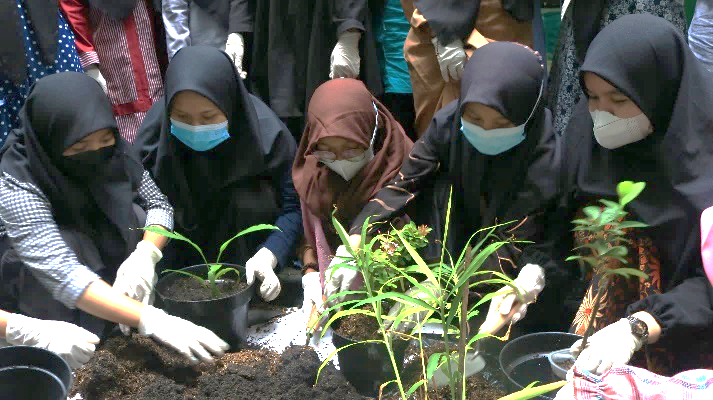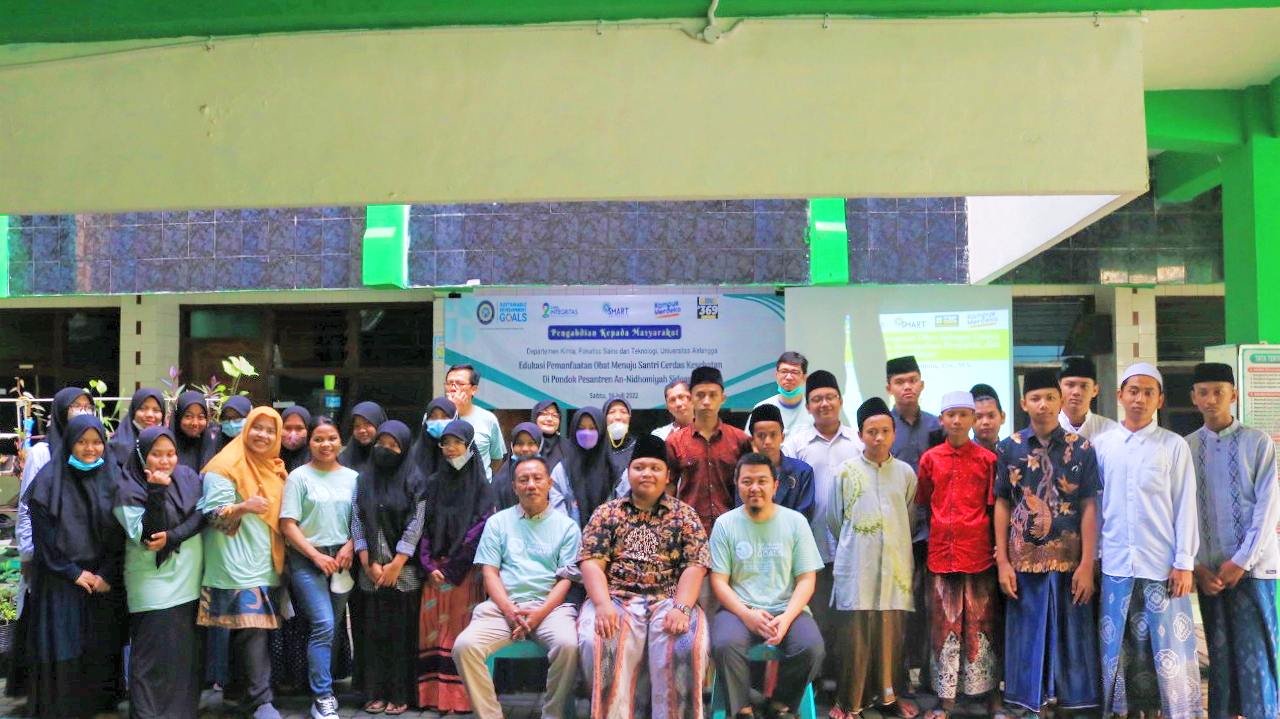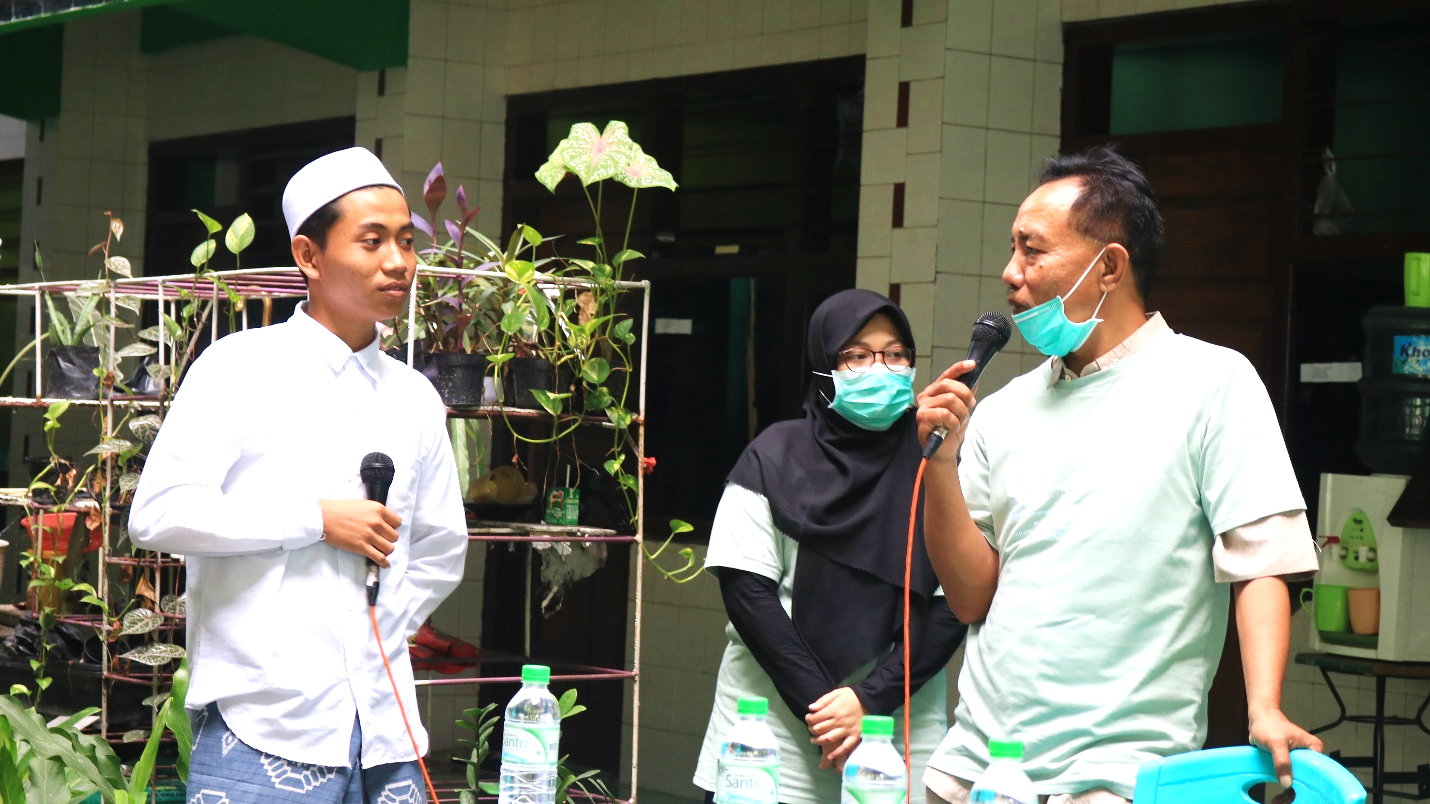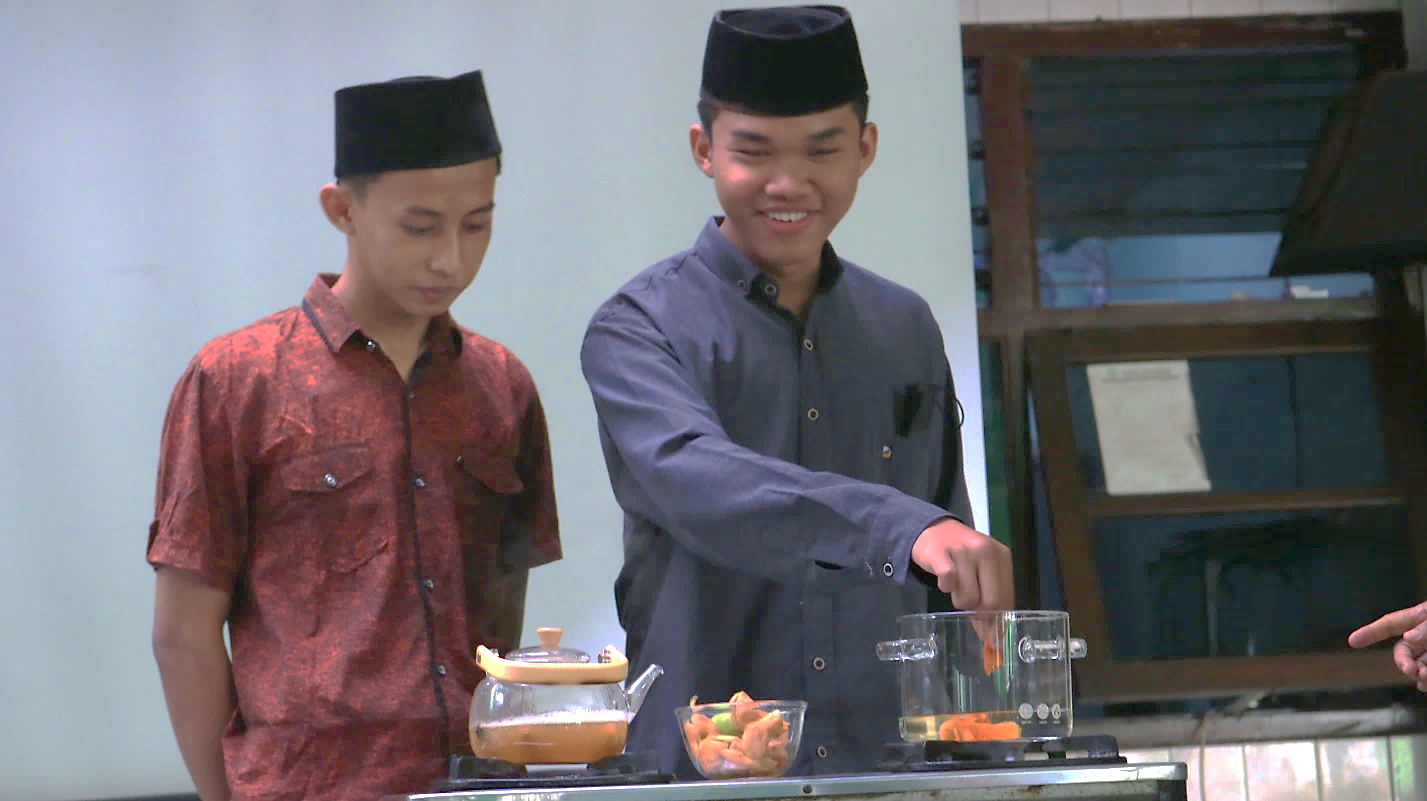Chemistry Universitas Airlangga held a community service on educating the utilization of medicinal plants in An-Nidhomiyah Islamic Boarding School Sidoarjo

The Department of Chemistry, Faculty of Science and Technology (FST), Universitas Airlangga, recently held a community service activity titled “Education on Utilizing Medicinal Plants Towards Health-Literate Students at An-Nidhomiyah Islamic Boarding School, Sidoarjo.” The event took place in the courtyard of An-Nidhomiyah Islamic Boarding School, located in Ngelom Village, Taman District, Sidoarjo Regency, last weekend (16/7/22). The activity involved a team comprising faculty members, administrative staff, and students from both undergraduate (S1) and graduate (S2) programs. This community service initiative aimed to assist the government in promoting the use of traditional herbal remedies, especially during and after the Covid-19 pandemic. Additionally, it aimed to provide clear information and guidance to the boarding school community regarding the types, chemical contents, benefits, and utilization of traditional medicines.

The event was divided into three sessions: a talk show on medicinal plants and their benefits, practical sessions on making traditional medicine, and communal planting of medicinal plant seedlings. This activity aimed to empower and encourage active community participation in developing traditional health practices so that the pesantren community can independently and correctly manage their health through the use of medicinal plants, including traditional herbal drinks (jamu) and Standardized Herbal Medicine (OHT).
The event began with a talk show moderated by Prof. Dr. Mulyadi Tanjung, M.Si., also known as Pak Ucok. He presented on the potential use of medicinal plants for health maintenance, disease prevention, and healthcare. The session was interactive, with enthusiastic participation from attendees regarding the importance of utilizing medicinal plants. He emphasized that the success of the event would be measured by participants’ enthusiasm and application of the knowledge gained to maintain their health.

The next event is a workshop on the Indonesian Traditional Medicine Formulary (FROTI) recommended by the Ministry of Health of the Republic of Indonesia. This session is led by Prof. Dr. Pratiwi Pudjiastuti, M.Si., and Qurrota A’yuni, M.Si. The students actively participated by trying to create traditional medicine formulations. The first formulation consisted of boiled red ginger, lime, cinnamon, and brown sugar. Meanwhile, the second formulation included boiled turmeric, galangal, lime, and brown sugar.

Planting medicinal plant seedlings together with the students marks the conclusion of this community service activity. The medicinal plants include three types: rhizome/herbaceous types, leaf types, and fruit types. Rhizome/herbaceous plant seedlings include ginger, red ginger, turmeric, aromatic ginger, and galangal. Leafy plant seedlings include moringa, gotu kola, ashoka, and celery, while fruit plant seedlings consist of lime and lemon. These medicinal plants are then placed in the courtyard of the Islamic boarding school. Moving forward, it is hoped that the students can take good care of these medicinal plants so that they can be used in the future as traditional remedies for health care and disease prevention.
